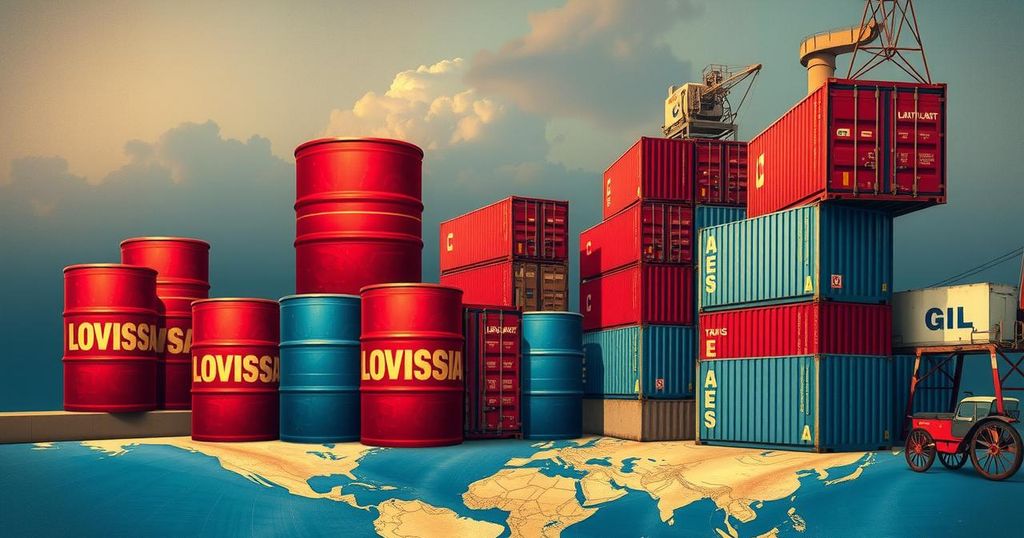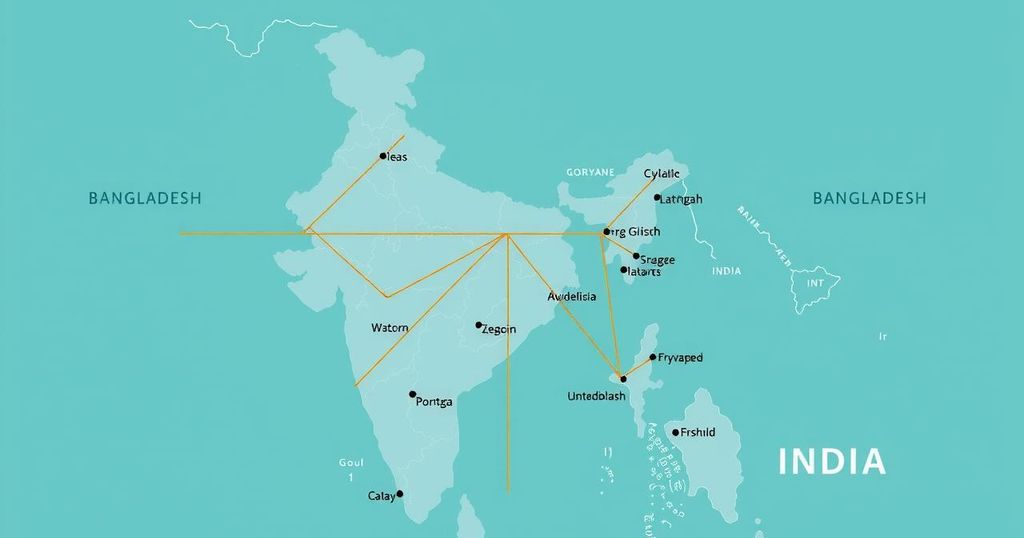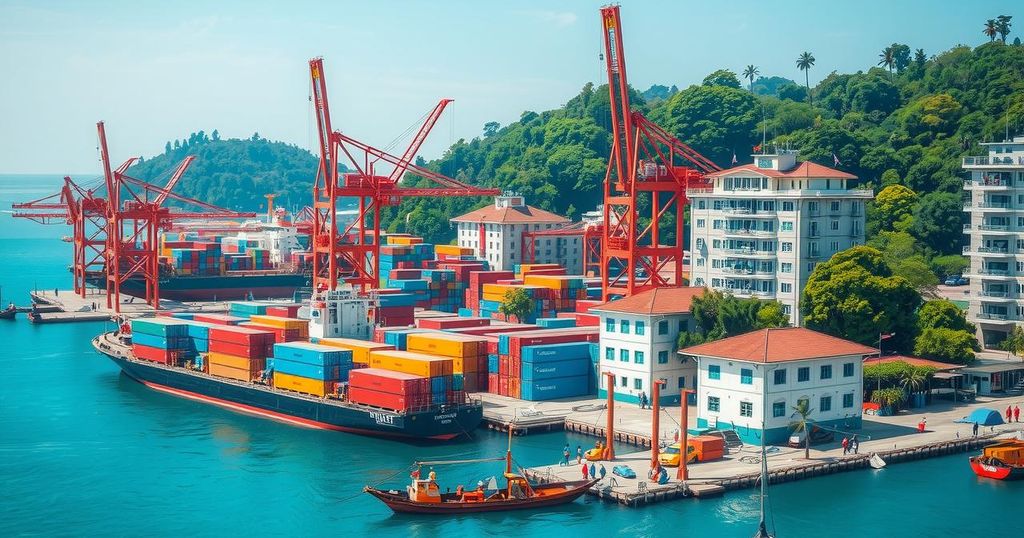Politics
AFFAIRS MINISTRY, ASIA, CANADA, CHINA, CHINESE FOREIGN AFFAIRS MINISTRY, CLAUDIA SHEINBAUM, COM, CUBA, DEPARTMENT OF COMMERCE, DONALD TRUMP, GEOPOLITICS, HONG KONG, JIAKUN, MACAU, MARCO RUBIO, MEXICO, MÉXICO, NATIONAL SECURITY, NORTH AMERICA, PD, PHILIPPINES, SECOND THOMAS SHOAL, SOUTH AMERICA, TERRITORIAL DISPUTES, UNITED STATES, US, US-CHINA RELATIONS, VENEZUELA, VENEZUELANALYSIS, WASHINGTON, WHITE HOUSE
Dante Raeburn
China Critiques US Tariff Policy on Venezuela Amid Economic Crisis
China has condemned the US’s proposed 25 percent tariffs on nations importing Venezuelan oil, emphasizing the negative impact on international trade. The Trump administration aims to cut financial support to Venezuela, citing concerns over gang violence. Analysts warn that these sanctions could exacerbate Venezuela’s economic difficulties. The situation complicates international energy trade, particularly affecting relationships with China, India, and Europe.
On March 27, 2025, during a press conference, Guo Jiakun, a spokesperson for the Chinese Foreign Affairs Ministry, criticized the Trump administration’s recent proposal to impose a 25 percent tariff on goods from nations importing Venezuelan oil and gas. Jiakun urged the United States to halt its interference and lift the so-called unilateral sanctions against Venezuela, emphasizing that “There are no winners in a trade or tariff war.”
Jiakun also noted the long-standing use of unilateral sanctions by the US and predicted adverse consequences for American businesses and consumers due to these tariffs. Internationally, similar sentiments were echoed by leaders in Mexico and Cuba, who condemned the measure, suggesting it disproportionately harms common citizens rather than governing bodies.
The Executive Order, signed by President Donald Trump, allows for the potential 25 percent taxation on imports from countries engaging with Venezuelan energy resources, with enforcement directed by Secretary of State Marco Rubio. This action is presented as an effort to sever financial ties supporting the Venezuelan government, stressing that access to the US market is considered a privilege rather than a right. The tariffs are set to take effect on April 2, and may remain for one year unless lifted earlier at the discretion of US officials.
Despite the order, the specifics regarding the enforcement of these secondary tariffs remain unclear, amid growing concerns over Venezuelan oil traders developing strategies to obscure shipment origins. Additionally, the US administration cites a need to retaliate against threats posed by the Tren de Aragua gang, which it classifies as a foreign terrorist organization. Claims by the Maduro government posit that it has dismantled the gang’s operations.
Caracas maintains that the United States is conducting an economic war against Venezuela, violating international trade norms, which may exacerbate an already critical economic situation. Analysts report that this action could impact oil revenues and contribute to renewed inflation, while the Maduro administration insists on strengthening the oil sector amidst these challenges.
Since 2017, the US has imposed a series of sanctions and an export embargo on Venezuela, significantly impacting its oil production capabilities and forcing it to rely on intermediaries for crude sales. The latest tariff threat escalates US economic pressure, with Chevron being ordered to cease operations in Venezuela while delays and slowdowns have been noted across the country’s major ports.
China remains the principal importer of Venezuelan oil but has not yet provided guidance to operators on how to respond to the new tariffs. Meanwhile, Indian conglomerate Reliance Industries has stated intentions to pause future oil purchases amid these developments. The situation around European firms involved with Venezuelan oil remains uncertain as US Treasury reviews their operations, potentially leading to further limitations. Spain cautioned against the detrimental effects of a trade war, pledging a vigorous response to any negative impacts from the new US measures.
In conclusion, the Trump administration’s imposition of tariffs on countries purchasing Venezuelan oil introduces significant tensions in international trade relations, particularly with China, Mexico, and European nations. The broader implications of these economic sanctions not only threaten Venezuela’s economy amidst ongoing hardship but also pose challenges for US businesses and international energy markets. Coordination among affected countries and geopolitical responses will be critical in navigating this complex landscape moving forward.
Original Source: venezuelanalysis.com








Post Comment